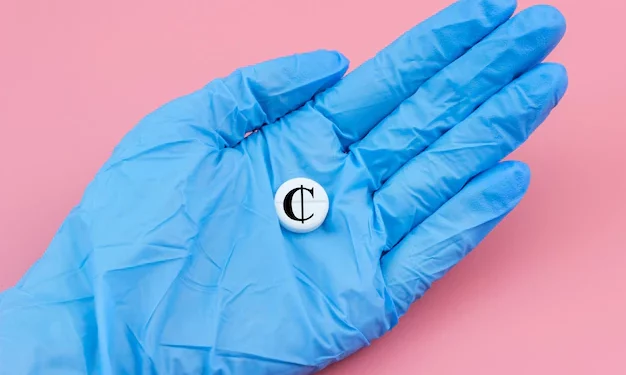Controlling the escalating prices of pharmaceutical products in an era of high cedi depreciation
Over the last month, the Ghana Cedi has seen significant depreciation against most major currencies. As this has happened, the cost of goods and services has risen in line with the depreciation and associated inflationary pressures.
As I write this, the full impact of this on the cost of healthcare is unknown. However, one can expect that the cost of medicines will go up significantly, and this increase is likely to be significant for several reasons.
Ghana’s pharmaceutical market size was approximately US$616 million in 2020 and was forecasted to grow at a rate of 5.3% annually over the next ten years. Of this market size, 70% was made of imported products, with the remaining 30% being produced locally.
It must be stated that 83% of all materials for local manufacturing are also imported, making the sector heavily sensitive to foreign exchange rate fluctuations.
A further breakdown of the market suggests that 60% of purchased products are generic medicines (products containing the same chemical substance as one that was originally protected by chemical patents).
These often are cheaper to buy and can drive down the cost of healthcare for the end user. Another 31% are over-the-counter (OTC) products that citizens purchase either on their own or following the advice of a pharmacist with the remaining 9% being medicines under patent (the most expensive category).
Ordinarily, one would have expected that with generic medicines being the highest proportion of medicines used locally, competition would drive prices down. Unfortunately, this is not the case. It isn’t because Ghana has no structured pricing policies in the pharmaceutical distribution supply chain thus the main drivers of pricing are supply chain mark-ups and forex fluctuations.
The total price build-up of a generic medicine can be summarized as follows, manufacturer’s selling price, freight, taxes and tariffs and markups. Mark-ups are additional costs and charges that are applied to defray expenses incurred by community pharmacy retailers whilst bringing the product to their patients.
Data suggests that in Ghana, taxes and tariffs contribute between 30% to 40% of the end-user cost, with markups representing anywhere between 50% and 200%. This means the manufacturing cost for most generics is less than 10% of the actual price a patient pays at the pharmacy counter.
One may ask, what drives this skewed pricing model? This brings in the elephant in the room i.e., forex fluctuations. Any pharmaceutical product purchased from the manufacturer, be it raw material or finished, has its price quoted in or indexed to the dollars or other similar reserve currency.
As the buyer is converting Cedis to purchase this, they are bound to always factor in not just the exchange rate at the time of currency conversion but the projected exchange rate when they require future supplies. In this current climate, the projection is likely to be a guestimate, and many importers will err on the side of larger rate fluctuation.
When the products arrive at the port of entry, taxes and tariffs are calculated on the dollar estimation of the imported pharmaceutical and converted into Cedis at an exchange rate that is
reviewed weekly. This further increases the product price at entry. Having factored all these in, the importer fixes the local wholesale price to ensure he makes a profit whilst preserving his capital. Again, he keeps an eye on forex activity and adds on any inflationary pressures affecting his business.
The retail pharmacy that purchases these products goes through a similar price build-up and adds on their profits and professional fees. Therefore, the price a patient pays at the pharmacy counter could be as high as 200% of the medicine’s initial manufacturing price.
With Ghana’s Health expenditure per capita data suggesting that 52% of all health costs are privately funded, many would likely receive shocks in the coming weeks and months when they walk to the pharmacy counter to refill prescriptions for their chronic disease medication.
As if that is not bad enough, health facilities and community pharmacy retailers may soon find out that the reimbursement they receive from the National Health Insurance Authority (NHIA) for services provided to National Health Insurance Scheme (NHIS) patients doesn’t cover the cost of restocking supplied medicines.
To avoid this, the NHIA will have to speed up the turnaround time for health provider reimbursement and may also have to alter the frequency of reviewing its medicines formulary prices. Neither of these options is easy to achieve. With less than 5% of NHIS patients paying a premium, the NHIA is reliant on the Ministry of Finance for funds collected on their behalf to be released.
Historically, these releases have been irregular, leading to the NHIA being indebted to its service providers. Therefore, it is unlikely that in this current period of austerity, the exchequer will have the liquidity to expedite the fund release process.
Should the NHIA agree to a frequent review of medicine prices in their formulary, the scheme may become cash-strapped. This is because the tariffs that fund the scheme have already been fixed (2.5% levy on goods and services, 2.5 percentage points of Social Security and National Insurance Trust (SSNIT) contributions per month, return on National Health Insurance Fund (NHIF) investments and premium paid by informal sector subscribers).
None of these funding streams is dollar indexed and, in real terms, are depreciating against the cost of medicines due to the depreciating Cedi and inflationary pressures.
Thus, should the NHIA succumb to pressure from providers to review upwards medicines tariff prices, their medicines bill will increase significantly at a time when their funding inflows are stagnant and depreciating in dollar terms. This could lead to the scheme’s inability to pay providers, which in turn may force these providers to minimise supplies they make to NHIS card holders in preference for out-of-pocket medicines purchases.
A situation that will drive up further private contribution to Ghana’s health expenditure per capita and, by default, the cost of healthcare to the end user. I estimate that if nothing is done, the average cost of medicines will be up by between 34% and 49% on December 2021 values.
Based on the above, my view is that the time has come for the country to work on a pricing policy for pharmaceutical products that considers all the moving variables. This policy would only work if the government can ensure the security of foreign exchange to the pharmaceutical sector at a lower than market price in a similar manner as it has managed with the petroleum industry.
If that is done, then stakeholders can agree on a dollar indexed External reference pricing model (approach where prices are set according to the benchmark prices for the same or similar medicines in comparable countries) for Ghana. Any stakeholder engagement will also have to discuss the options for improving funding to the NHIA to ensure the longevity of the NHIS scheme and to improve its coverage.
If these do not happen, I am concerned that escalating prices of medicines, especially for chronic disease management, could affect patient prognosis due to non-compliance and lead to many avoidable deaths. We have it in our gift to prevent this from happening and should act now.








